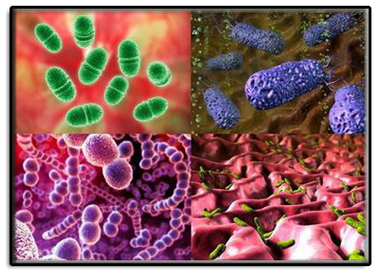|
Against Which mikroorganisms Antimic Guardian is Active?
Bacteria Bacillus Subtilis Escherichia coli Pseudomonas aeruginosa Candida Albicans Aspergillus Prorphyromonas Asaccharolytıca Streptococcus Anaerobic Cocci Strephylococcus Epidermis Bacteroides Fragilis Staphylococcus Aureus Viruses Human respiratory syncytial virus Influenza AInfluenza B A (deposited as Respiratory syncytial virus) Human rhinovirus 1A & 2 H1N1 virüsü Molds Candida Albicans Candida Tropicalis |
Properties of Antimic Guardian Tested Bacteria
Candida is a yeast organism (normally found on the skin, in the mouth, gut, and other mucus membranes) that causes infection. You may be more familiar with the terms thrush, oral thrush, yeast infection, fungal infection – these are all Candida infections, Staphylococcus aureus is a Gram-positive coccal bacterium and is frequently found in the human respiratory tract and on the skin. Although S. aureus is not always pathogenic, it is a common cause of skin infections (e.g. boils), respiratory disease (e.g. sinusitis), and food poisoning Escherichia coli (E. coli) bacteria normally live in the intestines of people and animals. E. coli are pathogenic, meaning they can cause illness, either diarrhea or illness outside of the intestinal tract. The types of E. coli that can cause diarrhea can be transmitted through contaminated water or food, or through contact with animals or persons. Streptococcus (genus Streptococcus. Streptococci are microbiologically characterized as gram-positive and nonmotile.Streptococcus contains a variety of species, some of which cause disease in humans and animals. Streptococcus pyogenes, can cause rheumatic fever, impetigo, scarlet fever, puerperal fever, streptococcal toxic shock syndrome, strep throat, tonsillitis, and other upper respiratory infections. Aspergillus.Aspergillus is a group of molds, of which about 200 species have been identified. Aspergillus molds are found throughout the world and are the most common type of fungi in the environment. About 16 species of Aspergillus molds are known to be dangerous to humans, causing disease and infection. |



